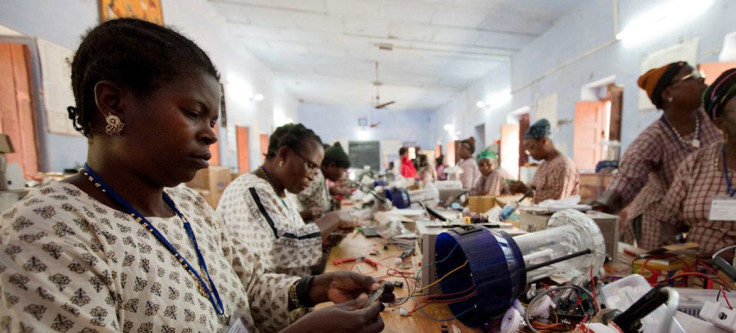Africa could be the answer to global supply chain disruptions, says new report
The United Nations Conference on Trade Development has shed light on how investing in African countries could help in tackling global supply chain disruptions.

The future of the global supply chain lies in the hands of Africa, revealed a new report done by the United Nations Conference on Trade Development (UNCTAD).
The report titled 'The Potential of Africa to Capture Technology-Intensive Global Supply Chains' highlights how countries in the African continent can pull up the world from the ongoing supply chain disruptions.
This comes at a time when businesses all over the world are fighting climate change in order to prevent supply chain disruptions.
The report advocates that African nations seize the opportunity and integrate technology into the global supply chains, boosting their economy. However, the possibility of turning the global supply chain disruptions into an advantage will solely depend on how Africa harnesses the market and investment trends and uses technology to overcome the challenges, said UNCTAD on August 15.
According to the report, Africa is poised to become a major player in the global export of higher value-added goods if it utilises the current global supply chain disruptions.
This in turn could herald a time of high economic growth for the African countries, ultimately creating jobs in the region and also increasing the productivity of African economies. The wages in the African nations can also get a major boost because of this, as per the report.
The Secretary General of UNCTAD Rebeca Grynspan underlined how the global supply chain could better the future of the African economies. Grynspan stressed the necessity of diversification for the development of the private sector.
Building resilience and enhancing innovation in the global supply chain is one of the critical ways of diversifying trade. This would bring the employment opportunities required to sustain the growing population of Africa, Grynspan added.
Factors making Africa the next big thing in the global supply chain
The UNCTAD Secretary General underlined three factors which contributed to Africa's competitive advantage over other regions.
1. Geopolitical: Nations and businesses today are trying to diversify the suppliers in their portfolio in order to minimise business risk and Africa is strategically positioned in the world map to take advantage of this, said Grynspan. The African Continental Free Trade Area offers makes it easier for African countries to join the global supply chains.
2. Renewable energy market: The world is witnessing a sudden surge in the renewable energy market as most countries try to tackle climate change with net-zero targets. The African nations are sitting on a pit of raw materials required for these technology intensive industries like lithium used for making electric car batteries. Africa could become the next big manufacturing destination and exporter of higher value goods not just commodities, revealed the UNCTAD General Secretary.
3. Demographics: Lastly the biggest advantage of the African nations lies in its young and dynamic workforce which is crucial for businesses. Not just that, the region is a good consumer market for hi-tech goods owing to its substantial middle class population. Together these two provide Africa with a demographic advantage unlike any other continent, said the Secretary-General.
Global Supply Chains initiatives to strengthen African economies
The report further illustrated how Africa can utilise its "untapped potential" in the global supply chains to strengthen its position in the pharmaceutical industries, solar energy industry and the automobile sector.
The tech ecosystem in the African countries is already growing impressively as witnessed by the development of 3D printing, Artificial Intelligence (AI), fintech, blockchain and ecommerce hubs. Especially in African nations like Kenya innovation is booming to capture technology-intensive global supply chains, said the UNCTAD General Secretary.
The average monthly wage in Africa is $220 which is nearly a third of the American average monthly wage of $670. This could significantly change when technology intensive global supply chains and industries are created in Africa, revealed the UNCTAD chief.
As per the UNCTAD report, the African economy is likely to become more resilient and prepared to tackle future shocks in the system if it goes for deeper integration into the global supply chains as it would diversify the system.
Investments in the African renewable energy sector crucial to diversify the global supply chain
The General Secretary highlighted the necessity of investing in the renewable energy of Africa in order to achieve this global supply chain diversification. The UNCTAD report showed that Africa gets a two per cent share of global investments in the renewable energy sector.
Speaking about the matter, UNCTAD's Africa Division Director Paul Akiwumi stressed removing regulatory barriers and creating regional industrial development plans to achieve a large-scale private investment in Africa.
Akiwumi highlighted the Congo-Zambia region which created an industrial zone for electric car batteries production. Product registration and intellectual property rights are also crucial in this regard, said Akiwumi.
This comes at a time when a UK backed funding project invested £10 million for the development of sustainable climate infrastructure in Nigeria.
The UNCTAD General Secretary called on the UN to support the African nations by changing the debt rules for the region as it restricts the region. At present, African countries have to pay four times more than the US for borrowing.
The situation is worse when compared to the European countries, as the debt disparity is eight times in this regard. In order for Africa to seize the opportunity that the global supply chain disruptions provide, the asymmetric rules must change so that global investors can freely invest without any perception of risks, said Grynspan.
© Copyright IBTimes 2025. All rights reserved.






















